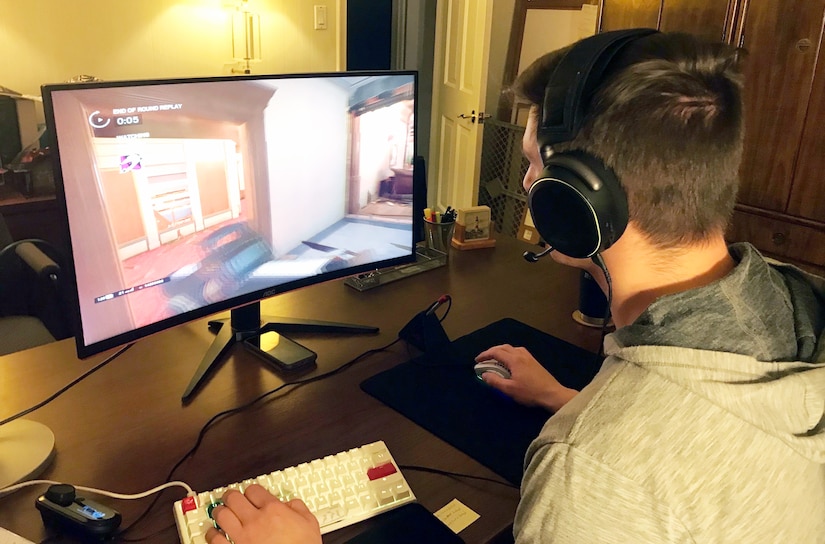April 28, 2020 | BY BRANDON O’CONNOR
Just moments before tipoff, the NBA game between the Utah
Jazz and the Oklahoma City Thunder on March 11 was postponed due to concerns
related to COVID-19.
After it was announced that Rudy Gobert, the Jazz's starting
center, had tested positive for the virus, the postponement turned into a tidal
wave of cancellations that spread throughout the country. First, the NBA season
was suspended indefinitely. Then every professional sports league in the
country shortly followed suit.
The tidal wave found its way to the banks of the Hudson
River when the U.S. Military Academy canceled sports for the rest of the
academic year. The cancellation cut short spring sports seasons and ended
sports such as wrestling just before their national championships.
The same wave caused the academy to indefinitely postpone
the return of cadets from spring break, leaving them spread throughout the
country.
With sports at every level canceled and cadets being stuck
at home, Cadet Nick Basile, the captain of the West Point esports team, and his
teammates saw an opportunity to fill the void.
Basketball, hockey and baseball may have been affected by
COVID-19, but social distancing in a room all by themselves was a moment for
which gamers were uniquely prepared. With no requirements other than a
computer, fast internet, headset and an opponent, the esports season was able
to continue as traditional sports went into hiatus.
''It was kind of like a joke amongst all of my friends,''
Basil said. ''They're telling us to sit at home and not do anything and not go
out, and we're like, 'Well that's kind of what we do anyways on a Friday
night.' We want to play video games. We saw this opportunity and all the other
sports aren't working, but our league is still going. We're still part of the
Collegiate Rainbow Six League.''
The West Point esports team became an official club at the
academy in January and joined the Collegiate Rainbow Six League. The league
includes about 140 collegiate teams that compete in head-to-head Tom Clancy's
Rainbow Six Siege matches.
The season had already started before the COVID-19 pandemic
and has continued even though other sports have shut down. In recent weeks,
West Point has played matches against Oklahoma State University and the
University of Mississippi, with competitors playing from their own homes and
communicating via voice chat and Discord.
''We almost knew right away [that we could continue playing]
because we know this is the nature of esports,'' said Victor Castro, the
officer in charge of West Point esports. ''We know we live in the digital
domain. We know the only thing we depend on is internet connection and ... the
capability of what they brought with them.''
It took some work to get everyone set up, Basile said.
Teammates had to figure out what equipment they had, discern the capabilities
of their home internets and adjust to their new schedules during remote
learning. Once the kinks were worked out, they hit the ground running, he
added, and they have been streaming on Twitch three times a week on average.
The team has also used Instagram, Twitter, Facebook and
YouTube to reach a wider audience and continue to promote the academy.
''The team has been awesome,'' Basile said. ''I couldn't
have asked for a better group of people to start this team with and get things
going. They've been great at keeping up on the content and keeping things
moving. We've stayed motivated, despite all this. They all saw this possibility
and this opportunity where Army West Point esports can step into the light, and
we've all capitalized on it. It's been great.''
Along with their normal collegiate matches and streams of
Rainbow Six, Counter-Strike and Call of Duty, the team recently hosted a Call
of Duty Modern Warfare tournament for the West Point community. Twenty-nine
duos competed in a double-elimination tournament with the semifinals and finals
streamed on the team's Twitch channel. Teams made up of current cadets,alumni,
professors and family members competed, said Castro.
''We had a ton of interaction on our Twitch chat, which was
really cool to see people interacting, talking about the games and
commenting,'' Basile said of the response to the tournament. ''We had a huge
boost in social media followers across all of our platforms. We also had a big
influx into our Discord community, which is awesome. We love seeing people come
into the server.''
After recently playing an exhibition match against the Army
esports team, and with the help of Army Marketing, West Point esports
officially became a Twitch partner last week. The partnership allows the team
to have more features on its Twitch streams, and there are plans for Twitch to
feature the team on its homepage, which will help raise the team's profile.
As the team grows in popularity, the amount of people tuning
into streams roughly double in recent weeks, Basile said.
Much in the same way the Army esports team was created as a
recruiting tool, the West Point team has been able to reach prospective cadets
through their streams, said Cadet Colin Jones, the team's social media manager.
Along with talking to prospective cadets on their Twitch and Discord chats,
members of the team can play alongside them while answering any questions they
may have about the academy.
''A lot of these high schoolers are getting interested in
playing esports at the academy, and they''ll message us on Instagram or Twitter
and say, 'Hey, how do I join the team?''' Jones said. ''That gives us a good
opportunity to say, 'Reach out to the admissions office.'''
To see the latest streams from the Army West Point esports
team visit them at Twitch.Tv/ArmyWestPointEsports.
(Brandon O’Connor is assigned to the U.S. Military Academy
at West Point, New York.)









No comments:
Post a Comment